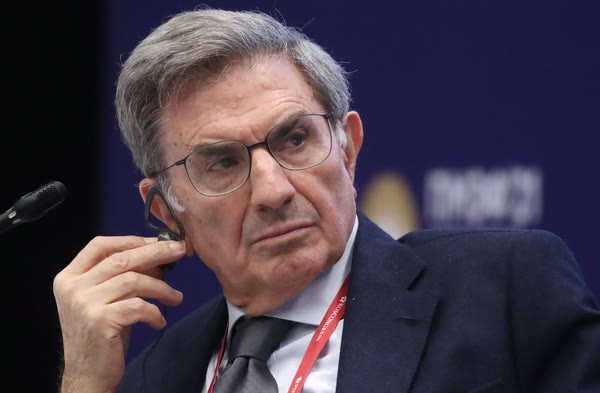
Reset or Overload? Rethinking Multilateralism among the Ruins of Globalization: A Business Perspective
KEY CONCLUSIONS
The world has become fragmented
“We are currently living in a much more fragmented world than we did two years ago. The world is severely paralyzed. […] We still haven’t been able to find a single solution to a rather vulnerable situation. This also applies to the pandemic and many other issues,” World Economic Forum President Borge Brende said.
“The art of diplomacy is also basically a thing of the past. It seems that we are more interconnected through videoconferencing, through the ability to communicate without physically visiting a site, but nevertheless, the art of diplomacy and the dialogue itself is increasingly split into interest groups, coalitions of interest, and then imposition occurs. And imposition is a terrible thing,” Deputy Minister of Foreign Affairs of the Russian Federation Alexander Pankin said.
“The situation that has developed in our country is one of stability and fairly predictable conditions. I’m certain that after all the twists and turns of this summer, foreign investments will come in the fall. This is a form of confirmation that interest is being shown in our country,” said Oleg Deripaska, Founder of RUSAL, GAZ Group, and the Volnoye Delo Foundation, and Chairman of the Supervisory Board of the Stolypin Institute for the Economy of Growth.
“For business, of course, predictability is very important. It’s important to understand global processes, how they progress and how they interact. We aren’t seeing this today. The level of cooperation at the global level is declining. It’s increasingly a struggle with the lack of any interaction. [...] We need open markets, open rules, fair rules of interaction, and fair rules of the game,” VTB Bank President and Chairman of the Management Board Andrey Kostin said.
Sanctions are a tool of the past
“The sanctions mechanism [...] is stupid and unlawful. It’s stupid because no great nation will hang its head simply because it is being sanctioned,” former French Prime Minister (2007–2012) François Fillon said.
“Sanctions are a tool of the past. […] We’ll wait for others to admit it […] We can survive the sanctions. What’s much more unpleasant is that there are no real rules in the world that would help us move forward,” said Oleg Deripaska, Founder of RUSAL, GAZ Group, and the Volnoye Delo Foundation, and Chairman of the Supervisory Board of the Stolypin Institute for the Economy of Growth.
“Sanctions are imperial acts of political superiority that are already dying out. These geopolitics of superiority have already led to huge losses culturally,” said Antonio Fallico, President of the Conoscere Eurasia Association and Chairman of the Board of Directors of Banca Intesa.
PROBLEMS
Disconnected politics
“Today we are seeing disconnected politics and the weakening of international bodies that can work out some sort of joint solutions [...] We are seeing less and less coordination and interaction between governments in maintaining some sort of order or system in terms of economic and financial regulation. […] The monetary policy will definitely be adjusted. Developing markets will be the first to suffer,” VTB Bank President and Chairman of the Management Board Andrey Kostin said.
“The world is facing a dilemma of how to live in the structure of a non-unipolar world,” said Oleg Deripaska, Founder of RUSAL, GAZ Group, and the Volnoye Delo Foundation, and Chairman of the Supervisory Board of the Stolypin Institute for the Economy of Growth.
“On the one hand, globalization has created a level playing field for everyone. On the other hand, we will see an increase in inequality,” World Economic Forum President Borge Brende said.
“Business is precisely the recipient and subject of most laws and reforms, so our voice must be heard loud and clear,” said Emma Marcegaglia, Chair of the Business 20 (B20) and Vice Chairman and CEO of Marcegaglia Steel S.p.A.
SOLUTION
Transformation of international relations
“The launch of a new system requires a serious transformation of the existing international institutions that deal with economic policy and financial policy,” VTB Bank President and Chairman of the Management Board Andrey Kostin said.
“Without Russia, it would be impossible to organize a new structure of law-based international relations and the ability to fairly settle disputes. [...] On the whole, I don’t believe that it’s possible to agree on something serious without having international legislation and without ending all conflicts. [...] We need to be a fully sovereign country so that we can wake up in the morning and not look to see whether or not we have been cut off from SWIFT. [...] I think we’ll be able to surprise and help the Russian population both with the help of banks and the investments that enterprises will make after receiving additional resources,” said Oleg Deripaska, Founder of RUSAL, GAZ Group, and the Volnoye Delo Foundation, and Chairman of the Supervisory Board of the Stolypin Institute for the Economy of Growth.
“Activating the economic sector is precisely what we need,” Qatari Minister of Commerce and Industry Ali bin Ahmed Al Kuwari said.
“[We need to] develop specific policy recommendations. We are planning to do this so that the exact reforms that are required to keep trade free are adopted,” said Emma Marcegaglia, Chair of the Business 20 (B20) and Vice Chairman and CEO of Marcegaglia Steel S.p.A.
For more, see the ROSCONGRESS.ORG Information and Analytical System.








